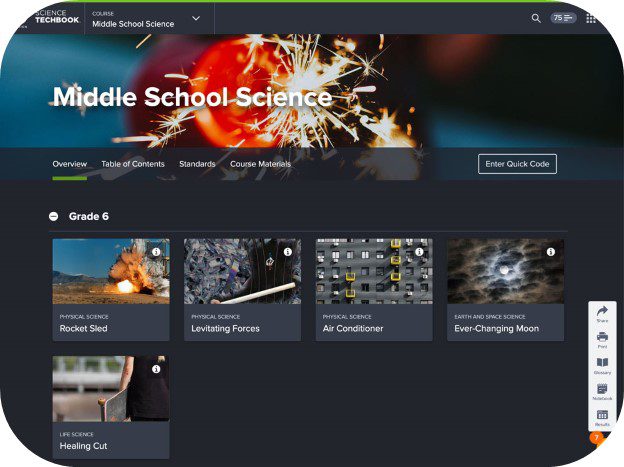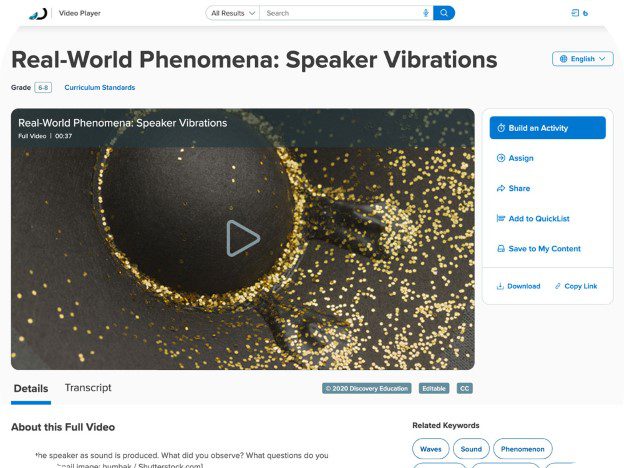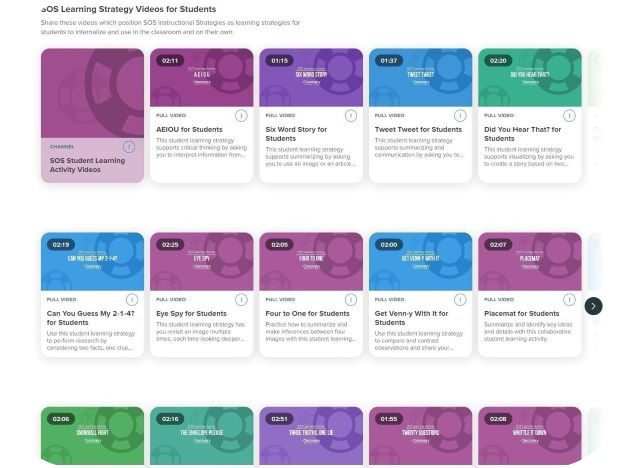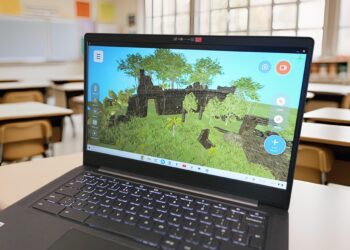I have used Discovery Education for several years, and the gradual change to invoke students' voices has revolutionized my classroom for the better.
I have witnessed the steady improvement in my students’ writing based on “feeling” to evidence. Students apply methodical thinking and evaluation like scientists and engineers to address abstract problem solving and reflect on issues with peers to develop solutions. The key component aiding my students in this process has been the scaffolding and open questioning found in DE Science Techbook and SOS Instructional Strategies.
Cultivating Collaboration
Science Techbook introduces real-world phenomena that students can use their past experiences to connect to, helping them relate to the overall topic. For example, the Physical Science Unit in the 8th Grade Techbook introduces the concepts of energy through waves to produce sound with wireless speakers. My students were familiar with wireless speakers, they use them all time, but they started to pause when they had to think about the “how and why” the wireless speaker worked. This moment of reflection led to deeper thinking and collaboration that then sparked personal curiosity through questioning from the material.
When combined with collaborative strategies like the SOS Placemat Activity, students were able to bring their initial models and thoughts to a small collaborative group (which also helps greatly for students with performance anxiety). Through Placemat, they first explained their individual models of how the wireless speaker produced the music from the cellphone. Then, they deliberated in a one-group consensus model after sharing and troubleshooting with peers. This allowed my students to express themselves comfortably, raising their confidence, not only in science, but in their voices.
Creating Classroom Culture & Building Critical Skills
Students tend to shy away from writing due to fear of being wrong or ostracized for thinking a specific way. The strategies from DE, such as Four Corners or Tweet Tweet, help alleviate those concerns. I have seen students become emboldened when they realize their responses are in line with others, and it’s amazing to see the sense of camaraderie created among the class.
This level of support blends seamlessly when it comes to written expressions of understanding like constructing explanations. Once a safe space was created with students, I introduced another SOS strategy, Quick Conference, in tandem with Science Techbook concepts. I modified it to allow students to confirm or clarify their claims and supporting evidence. The questioning allowed my students to reflect in that moment why they used the chosen evidence by explaining to peers their reasoning and thought process. When it was time for revision and closing thoughts, my students used that time to develop their reasoning based on their interviews with other students. It is a great aid to helping students build critical skills, better understand the science lessons they’re learning, and really see the bigger picture for themselves.
DE Science Techbook and SOS Instructional Strategies go hand in hand. They’ve turned my classroom into a forum of healthy discussions and empowered learners. My next plan is to expand these methods to involve parents, reinforcing the concepts learned in class and transferring them to their home and daily lives. Wish me luck!
About the Author
In addition to being a DEN STAR, Jacquelyn Freeman, teaches 8th grade science in Maryland and has a Master of Education in Educational Technology. She also serves as a Curriculum Writer, developing curricula for secondary education based on NGSS and student-centered learning strategies, as well as an 8th Grade Science Chair where she leads a team focused on creating innovative, research-based teaching strategies to encourage critical thinking in the classroom.









